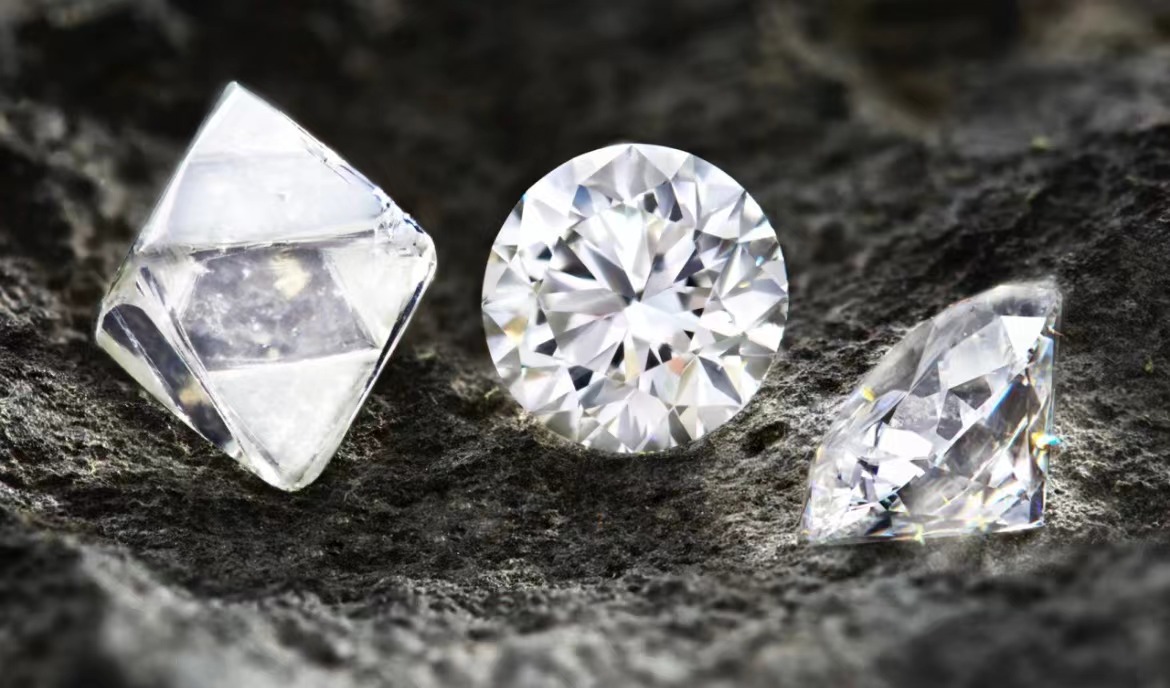On January 11, 2024, at the seminar of the 10th Brilliant Gujarat Global Summit (hereinafter referred to as VGGS), Russian Ambassador to India, Denis Alipov, emphasised that the global diamond industry is currently due to Western sanctions against Russia. Facing difficulties, this has become a hot topic in the industry. He suggested that India should "become the rule-setter" in diamond certification.
According to the India Express, diamonds produced in Russia continue to be subject to sanctions in the West due to the impact of the Russian-Ukrainian conflict. Since January 1 this year, the Group of Seven (G7) countries have banned the import of all diamonds produced in Russia, and are expected to enforce the rough diamond certification system based on tracking procedures later this year.
Alipov said that he had previously talked about the topic of India's transformation from a 'rule acceptor' to a 'rule maker'. My point is that it is time for India to go further to the front and turn passive into active. Why not take on the role of setting rules? Why use the certification system set up by those who impose sanctions? The possible solution is that, first, India, as a leader in the production of finished diamonds, gemstones and jewellery, should establish a direct and mutually beneficial relationship with Russia, which is the main hub for diamond exports; second, create its own rules.
He stressed that the International North-South Transport Corridor (INSTC) is a crucial priority development project for Russia. Gujarat, India, has a unique geographical location and has the ability to play a greater role in developing the infrastructure of this north-south corridor.
Alexander Rybas, Russia's trade commissioner in India, also said: "In recent years, the Russian economy has always had to meet new challenges. The first one is the COVID-19 pandemic, which has led to the disruption of logistics. In the past two years, the global economy has faced a serious test. Secondly, the geopolitical situation has caused systemic problems in the global market. At present, the negative impact of the actions of third-party countries is gradually and steadily reducing. He suggested that India seize this favourable opportunity and stimulate more Russian companies to re-enter the market. He added: "This will be more in the interests of both countries."
Russia actively advocates India to lead the trend in the field of diamond certification
On January 11, 2024, at the seminar of the 10th Brilliant Gujarat Global Summit (hereinafter referred to as VGGS), Russian Ambassador to India, Denis Alipov, emphasised that the global diamond industry is currently due to Western sanctions against Russia. Facing difficulties, this has become a hot topic in the industry. He suggested that India should "become the rule-setter" in diamond certification.
According to the India Express, diamonds produced in Russia continue to be subject to sanctions in the West due to the impact of the Russian-Ukrainian conflict. Since January 1 this year, the Group of Seven (G7) countries have banned the import of all diamonds produced in Russia, and are expected to enforce the rough diamond certification system based on tracking procedures later this year.
Alipov said that he had previously talked about the topic of India's transformation from a 'rule acceptor' to a 'rule maker'. My point is that it is time for India to go further to the front and turn passive into active. Why not take on the role of setting rules? Why use the certification system set up by those who impose sanctions? The possible solution is that, first, India, as a leader in the production of finished diamonds, gemstones and jewellery, should establish a direct and mutually beneficial relationship with Russia, which is the main hub for diamond exports; second, create its own rules.
He stressed that the International North-South Transport Corridor (INSTC) is a crucial priority development project for Russia. Gujarat, India, has a unique geographical location and has the ability to play a greater role in developing the infrastructure of this north-south corridor.
Alexander Rybas, Russia's trade commissioner in India, also said: "In recent years, the Russian economy has always had to meet new challenges. The first one is the COVID-19 pandemic, which has led to the disruption of logistics. In the past two years, the global economy has faced a serious test. Secondly, the geopolitical situation has caused systemic problems in the global market. At present, the negative impact of the actions of third-party countries is gradually and steadily reducing. He suggested that India seize this favourable opportunity and stimulate more Russian companies to re-enter the market. He added: "This will be more in the interests of both countries."

Source: Diamond Observation
